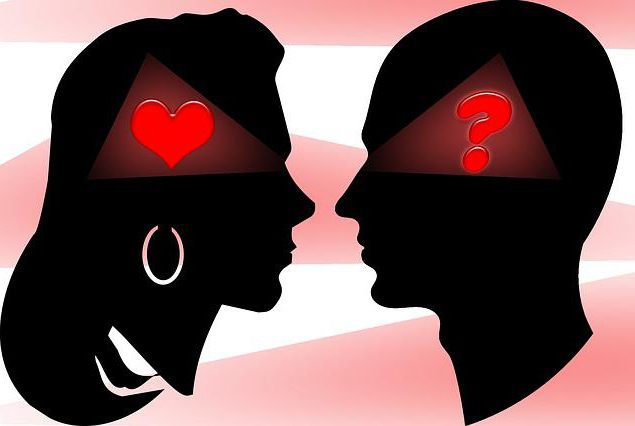Think about how sometimes it is difficult for even the most healthy person to describe their emotions when he looks at the sunset, inhales the aroma of spring flowers, hears the sound of rain on the roof. What to say about a patient with alexithymia, who is absolutely not able to give a verbal form to his feelings and feelings.
The essence of the term
Alexithymia is the inability to express emotions verbally, to select the necessary words to convey to the interlocutor the whole gamut of internal sensations. Psychologists say this is not a disease. Most likely, alexithymia can be called an individual feature of the psyche of the individual, a syndrome or a psychological problem that is not connected with mental capabilities. A person may be wise, for example, a famous scientist or researcher, but he will never tell you how he feels while watching a tear melodrama.

Since the 70s of the last century, the famous specialist Peter Sifneos, observing patients with somatic disorders, was the first to use the term “alexithymia”. This in psychology meant that the patient either did not know how to describe his emotions at all, or he did it inaccurately, incorrectly, and laconicly. Peter Sifneos argued that such people are deprived of a rich imagination, sometimes they do not distinguish between the bodily sensations and inner feelings, are not able to understand the feelings of another person. The listed features appear simultaneously or one of them prevails.
Spread
How many people were struck by alexithymia? This is a difficult question, the answer to which still does not exist, since individuals do not always turn to psychologists for help, considering their condition to be natural and natural. According to the latest statistics, the syndrome is observed in 5–25% of the world's population. A strong discrepancy in numbers is also due to the fact that specialists use various diagnostic methods to determine the presence of the disorder and its severity.
At the same time, psychologists say that alexithymia is not a synonym for complete insensibility. These people, like healthy ones, are worried, only they find it difficult to express their inner emotions verbally. The deficit of external manifestations in them results in bodily-vegetative reactions: feelings, finding no way out, are suppressed, are transformed into
psychosomatic diseases. If, however, a person suffers from autism, the connection between intellect and sensations may be completely interrupted and impossible. Therefore, such patients think that the verbs “feel” and “think” are synonyms.
Forms
The study of alexithymia is an important task for modern psychologists. Until now, some aspects of the syndrome are incomprehensible and unknown. Despite this, experts were able to distinguish two forms of violation: primary and secondary. Each of them has a different nature and external manifestation. Primary alexithymia can be obtained as a result of a birth injury. It also develops due to violations of the intrauterine formation of the brain in the fetus. It appears at an early age. Noticing something is wrong, parents should seek the advice of a neurologist.
Secondary alexithymia is the result of psychological trauma, which is sometimes accompanied by cerebral dysfunction or neurological disorders. It can be a manifestation of post-traumatic disorder, increased anxiety or latent depression. The development is affected primarily by improper upbringing: hyper-custody or, conversely, the lack of basic attention from parents. The primary is practically not treated; the secondary can be dealt with.
Causes
Alexithymia as a psychological problem has primary sources. They become the fertile soil on which the syndrome grows. Difficulties in the access of emotions to verbal expression were explained by numerous researchers who identified three main reasons:
- The suppression of impulses directed by the limbic system, which is responsible for the senses, to the cerebral cortex.
- Disruption of communication between the left and right hemispheres: the first of them cannot recognize the signals of experiences that are produced in the second.
- Genetically transmitted defects of the central nervous system.
The concept of alexithymia, as already mentioned, suggests that the violation also arises from improper upbringing. The child may lose the ability to express emotions due to imposed stereotypes, for example, “men should not cry” or “expressing feelings in public is indecent”. Some scientists also admit: alexithymia can result from a head injury - damage to the
corpus callosum, which is responsible for the relationship between the hemispheres.
Manifestations
Alexithymia is a psychology violation of a person’s emotional functions. In this regard, the nature of such individuals has some features:
- There are difficulties with communication, during which people constantly verbally express their feelings, describe a particular state of mind.
- The tendency to loneliness. Realizing that he is not like everyone else, a person often closes in himself, begins to avoid society.
- Limited fantasy. Such individuals rarely become artists, entertainers, or designers. They completely lack the ability to be creative.
- Inability to see vivid and colorful dreams.
- The presence of good logical thinking, a tendency to synthesis and analysis, the ability to take stock.
- Denial of intuition.
If a person suffering from aleximia is asked what he feels at that moment, one can hear the following answers: “cold,” “painful,” or “uncomfortable.” Such people always confuse emotions with bodily sensations.
Models
When an alexithymia is diagnosed in an individual, this means that he may form psychosomatic disorders in parallel . They relate to two behaviors: denial and deficit. The first involves a strong inhibition of affects, which allows the possibility of reversibility of the syndrome. Although in many patients the disorders are irreversible and cannot be changed even with the help of long-term therapy. Such people live without imagination and emotions. The deficit model is more adequate. People who choose it are not completely devoid of feelings, but only some of them, or they express their feelings, but in an incomplete form, not to the end. Sometimes they are even able to imagine and create.

Psychologists have not finally decided whether alexithymia is a situational state or whether it refers to a stable personal characteristic. Some experts believe that violations occur only during certain activities, for example, in the process of communicating with an opponent. Left alone, such a person is quite capable of expressing his feelings and emotions.
Complications
A lot of problems at the physical level cause alexithymia: peptic ulcer, dermatitis, gastritis, colitis, asthma, hypertension, coronary heart disease, stroke, atherosclerosis, allergies, migraines and so on. Unexpressed feelings accumulate inside the mind and gradually find their way out in bodily form: the hormonal background is disturbed in the individual , the organs and systems malfunction, and this causes the aforementioned ailments.
Another consequence of alexithymia is extra pounds and even severe obesity. According to numerous studies, the inability to express feelings quickly transforms into overeating, irregular eating habits, changing gastronomic tastes in favor of low-quality and harmful foods. At the same time, treatment of the syndrome against the background of overweight often becomes a problem for doctors. Particularly difficult cases include the development of alexithymia simultaneously with the individual's addiction to alcoholism or drug addiction.
Diagnostics
Often, alexithymia is confused with other psychological reactions: depression, cognitive underdevelopment, or schizophrenia. Therefore, the issue of accurate and professional diagnosis is very relevant in our time. To determine the presence of the syndrome, the alexithymia scale developed by the American scientist Taylor helps. The questionnaire was translated and adapted in St. Petersburg by specialists from the Vladimir Bekhterev Psychoneurological Institute. With its help, more than a hundred patients were examined, as a result of which it was established: patients with a right-hemispheric asymmetry of the brain are more unfavorable in terms of treatment.

Diagnosis is also carried out using another scale - Schelling-Sifneos. Doctors use John Crystal's questionnaires, as well as projective techniques, since such people have no imagination, so their answers are standard and of the same type. Despite this, the use of tests for clinical purposes is difficult, since there is no regulatory data. In addition, doctors do not have enough time to conduct experiments, as well as an error-free interpretation of their results.
Treatment
As noted above, primary alexithymia is difficult to treat. At the same time, the secondary, which is a consequence of children's experiences, can be eliminated using modern methods of influencing the consciousness of the individual. When a person is diagnosed with alexithymia, treatment begins with conventional psychotherapy. Gestalt therapy, psychodynamic modified techniques, art therapy and hypnosis are also used. The main goal is to teach the patient to express their feelings and emotions.

Great attention is paid to the imagination, which contributes to the expansion of the spectrum of emotional manifestations. As for medicines, scientists have not come to a single conclusion: do they help or not. Some psychologists note a good effect of the use of tranquilizers in the presence of psychopathological disorders, such as a panic attack. In any case, doctors are sure that the treatment should be comprehensive. At the same time, close people of the patient play a big role in it, who go towards him, help to open up the inner world of his own person, to throw out the stream of his suppressed and hidden experiences.